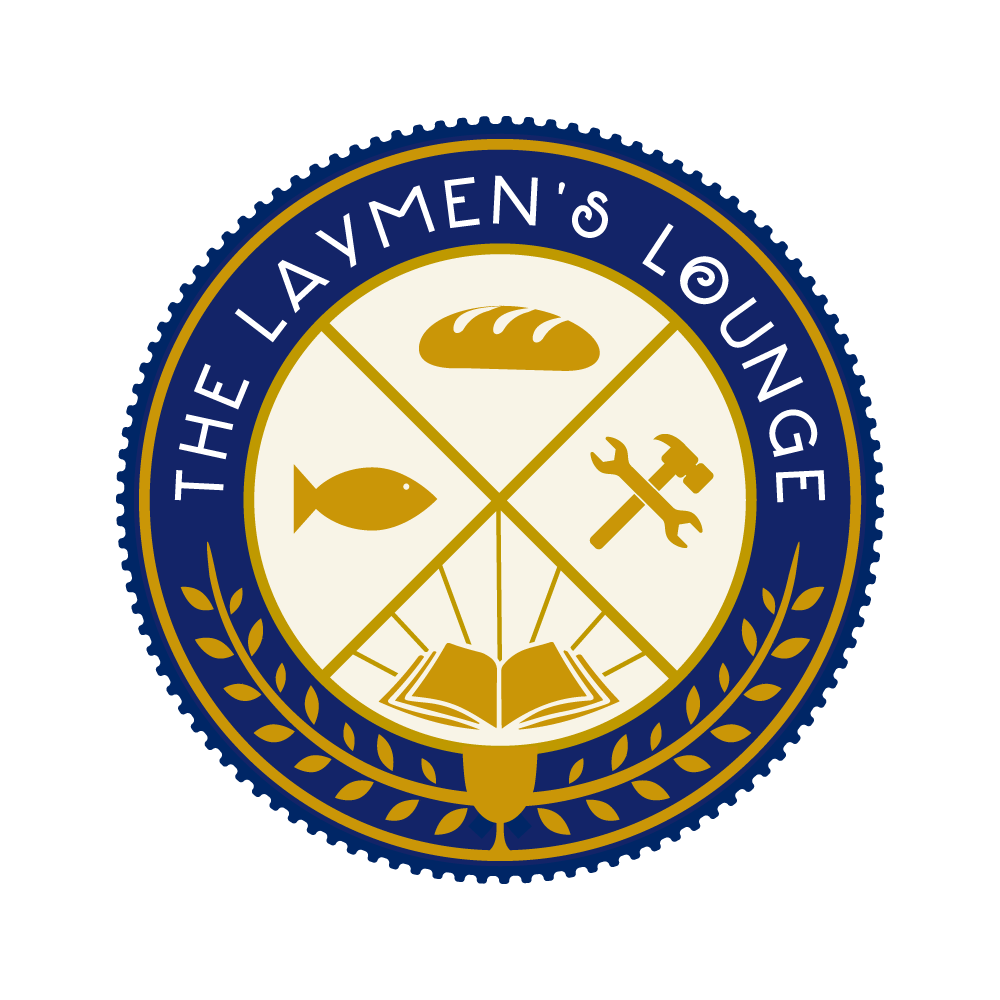by Peter Schuurman
Albert Wolters was my Greek professor, a columnist for The Christian Courier, an expert on the Dead Sea Scrolls’ Copper Scroll, and a careful exegetical preacher; but he is best known internationally as the author of Creation Regained: Biblical Basics for a Reformational Worldview—what philosopher Nicholas Wolterstorff called “The best statement I have come across of the ‘reformational’ Christian worldview.” It was first published by Eerdmans in 1985, with an expanded second edition published on the 20th anniversary in 2005. The book has been printed in over 12 languages now, and currently a Chinese edition is being developed.
Wolters is now 78 and moving into a retirement community with his wife Alice in Hamilton, Ontario, Canada. 2020 was the 35th anniversary of his landmark book and the 40th anniversary of his work on the Ontario Christian College Association, a group that helped bring a charter for Christian universities in Ontario and give them the legal space in which to grow and flourish. He is a Christian leader, mentor, and academic in the neo-Calvinist tradition you should know about. He helped start a church, a university, and nourished a growing movement for faithful Christian cultural participation the world over. I interviewed him in September 2020 to write this account of his work.
Agnostic Son of a Barber-Philosopher
Wolters was born in Holland in 1942 and immigrated with his family to northern British Columbia, Canada, where his father Syrt worked in the lumber industry and then as a well-read barber, known for engaging conversations. Wolters Jr. was formed in the public schools of Victoria, and his own inner life developed some increasing tension. On one hand, he attended the local Christian Reformed church and read the books by Dutch theologians like Herman Bavinck and Klaas Schilder that his father fed him regularly. On the other hand, he haboured an increasingly skeptical mind, and he began to doubt substantial matters of Christian doctrine. “I was basically an agnostic,” he said, describing his younger self. “I went as far as believing there was a Creator, but that was about it.”
The sudden and tragic death of his mother in his teen years put an end to those plans. “Even though I was an agnostic, I said I wanted to study theology. I wanted to go to Calvin College, study for the ministry, in the hopes that I would get faith along the way.” He completed a year at University of Victoria, and then transferred to Calvin College (now Calvin University), and majored in Greek. He wanted to test the faith, and see if it could hold up; if they couldn’t convince him there, then he had done his homework and could move on to other philosophical pastures.
Two things happened at Calvin that would challenge his skeptical posture and reinvigorate his Christian faith. “It was all very providential,” prefaced Wolters. The first was another tragic event: his dad’s intellectual hero, Calvin professor Henry Van Til, had a heart attack and died while teaching in the classroom. “Suddenly it was brought home to me that these intellectual games I was playing were actually a matter of life and death,” explains Wolters. It was a wake-up call to a spiritual seriousness.
Secondly, the philosophy department was buzzing with the excitement generated by the charisma of Dr. Evan Runner, and Wolters was caught under his spell. Runner was infectious in his love of the Bible as a foundation for Christian learning in whatever discipline God called you. He inspired Christian education at all levels and Christian institution-building in every sphere of cultural endeavour. Christianity was not only about prayer and chapel times: it was the motivation and guiding light for every act of Christian living. In fact, it was Runner that convinced Wolters to shift his trajectory from seminary and fly to the Free University in Amsterdam and study philosophy in graduate school instead.
What happened that changed his heart and mind about the Christian faith as the one true story of the whole world? He was reading some C. S. Lewis at the time and wrote a paper on G. K. Chesterton, but ultimately, he confessed, “My transition to faith was a leap of faith. I had not read Kierkegaard or Pascal and his wager, but I sort of said to myself, I’m going to wager it is true. It’s a very reprehensible thing to do. It’s theologically not very kosher. But that’s the way it worked out. It was an irrational, blind faith. It had no ground.” There is warrant for faith in Christ: “It’s not that you can prove the faith, but it’s not that there’s no evidence for it. There is the world; it didn’t just happen. Even when I was an agnostic, I did believe there was some sort of supreme being who created the world.”
Wolters graduated from Calvin in 1964 and spent 8 years in Amsterdam, completing a dissertation (1972) on Plotinus, a third-century Greek philosopher who had considerable influence in the life of St. Augustine. During that time, Wolters began correspondence with a young woman who had been in his social circles at Calvin—Alice Van Andel from New Westminster, British Columbia. He took a trip back to North America to see her, and they got engaged. “Its quite a remarkable story,” reminisced Wolters. “Our courtship was by letter and I still have the letters.” They married in 1970 in New Westminster. In Reformational thinking, this was not a distraction from the holy work of theological philosophy: matrimony is holy, too, as are children, of which the couple raised two and the homemaking that this assumes.
The Book that Almost Never Was
Wolters’ first position was as a history of philosophy professor at the Institute for Christian Studies in Toronto, a Christian graduate school in the Herman Dooyweerdian tradition—a Dutch philosopher who put the law and design of God at the core of this comprehensive philosophical paradigm. Wolters started in 1974, after being a student recruiter there for two years. It was his introductory lectures in the Philosophical Prolegomena course that would eventually become Creation Regained.
Incidentally, Wolters actually never determined to write or publish this book. In fact, it was the encouragement of his peers, and specifically colleague Bob Vandervennen that pushed him to start bringing his notes together in the early 1980s. In fact, it was Vandervennen that sent the manuscript to Eerdmans for publication. This was the Reformed worldview laid out in one short, accessible account, describing one book (the Bible) in three movements (creation, fall, redemption). All of reality, wrote Wolters, could be adequately understood through those three themes, and this framework could give direction to Christian endeavours in any cultural sector: the arts, humanities, social sciences, engineering, and the natural sciences. A good creation supplies the foundational structures, and God’s Word and Spirit provide the normative direction for redemptive culture-making in our fallen world. Christianity isn’t just a religion: it’s a whole way of life, a vision for human flourishing.
The impact of this small book has been international in scope. Wolters has routinely been told, “Your book has changed my life,” which startles him. In South Korea, he was treated like something of an academic rock star, and students asked for his autograph on their personal copies (sometimes even photocopies!) You should know this small book because it will open up your mind and heart to see the entire universe under the scope of God’s loving rule. Its an invitation to see Christian faith as addressing all that it means to be human, and turning our efforts to labour for Christ’s kingdom “on earth as it is in heaven.”
Further Adventures in Worldview
The second edition came 20 years later (2005) and with input from colleague Michael Goheen and feedback from the esteemed missionary Lesslie Newbigin, Wolter’s included the significance of narrative and mission in his primary focus on the Biblical worldview. Theology is best done in pencil, as context and scholarship are a running dialogue and we need to continually be attentive to the Spirit’s call. One staple of the Reformational tradition is the inseparable cooperation of Word and Spirit.
One measure of good scholarship is the fruitfulness of research it stimulates. The thin book After Worldview (2009, Dordt Press) brings together many worldview scholars to revisit the usefulness of the term “worldview”—in part as a reflection on Wolters’ “foundational” book. Some say “worldview” suggests an anthropology that is too cognitive, too focused on the visual, or lacking necessary emphasis on narrative and mission. Wolters reminds readers of his chapter that it’s a “world and life view” – “one’s overall orientation to reality at large”—stretching it beyond a purely intellectual framework. But Wolters doesn’t make an idol of the concept and neither does the book. There are other concepts that help us approach a faithful imagination and simultaneously see the fundamental religious nature of human beings. For example, consider St. Benedict (rule of life), James K. A. Smith (cultural liturgy), Charles Taylor (social imaginary), Calvin Seerveld (lifestyle), and Jim Olthius (adding to world-view: world-feeling, world-touching, world-smelling, world-tasting and world-hearing). Wolters himself played with the concept of “testimony”—as used in the Contemporary Testimony. Peter Enns more recently has suggested the term “wisdom” as the goal of Bible reading.
Wolters furthermore realized the Reformational tradition needed supplementing by the practises of spiritual formation, connecting worldview to church and to the ground of daily life. Wolters himself pursued spiritual direction in the Ignatian tradition—from a Jesuit priest and a Catholic nun. This, as well as his appreciation for aspects of the charismatic movement, demonstrates his openness to insight beyond his own inheritance as well as his willingness to not just lead when called, but also to be led by others. He is truly an ecumenical neo-Calvinist.
Other Projects: Institution Building and Biblical Studies
There is much more to Wolters than Creation Regained. ICS was a stimulating environment, and Wolters worked closely with graduate students. The subculture there was heady and at times, abstracted. In his 10 years there he felt himself leaning to a more conservative posture, and to closer Biblical study, and this at times caused some tension.
It was while he was teaching at ICS that he was asked to join the Ontario Christian College Association, a group dedicated to lobbying the government for a charter to start a Christian university in the province. The research, planning, and advocacy work the association did over a few years culminated successfully in a charter in 1980, and soon the doors of Redeemer College were opened on Beach Boulevard in Hamilton in 1982. Wolters joined the original faculty of eight in 1984, but he was asked to teach in a different discipline, the field of Biblical Studies.
“I don’t have a degree in Biblical Studies,” said Wolters to the hiring team.
“Then get a graduate degree from McMaster while you teach,” they replied.
So Wolters, after some prayer and discernment with his wife Alice, shifted his vocation from ICS over to a fledgeling undergraduate institution, and into a new discipline of Biblical Studies. This meant more teaching, taking classes again, writing papers, and tending a young family with two children.
Remarkably, the change was a tremendous relief. “I suddenly blossomed,” said Wolters. He was linguistically gifted (he has working knowledge of 12 languages) so he thrived in his investigation of the ancient languages and teaching Greek. Almost every essay he wrote for his new graduate courses at McMaster turned into a publishable paper for a reputable Biblical Studies journal. This quickly became a vocation for Wolters—to publish respectable scholarship from an orthodox Christian perspective in the mostly secularized pages of academic journals focused on the Bible (known as “higher criticism”). “I wanted to play in the big leagues for which I had no credentials,” reflected Wolters. “So I threw myself heart and soul into that calling.”
One of his papers for his graduate studies focused on the Copper Scroll (essentially a list of treasure) from the Dead Sea Scrolls, a unique opportunity facilitated by a visiting Israeli professor at the time, Dr. Shlomo Morag. By “providential fluke,” someone bumped into him at a conference who asked him to write a volume for a series on the Dead Sea Scrolls, as if he were an authority on the subject. Well, he embraced the task, the Hamilton Spectator did a story on his research, and he has since been considered the global expert on this scroll to this day.
Then while doing some graduate research on a text in Daniel 5, the story of the handwriting on the wall, he stumbled on something never noticed before: the word “scales” in the Aramaic could also refer to the constellation libra. This opened opportunity to compare the date indicated in the text against the movement of the stars, an exercise which verifies the historicity of Daniel—a finding that challenges the secular scholarly consensus. A similar stumbling into fresh interpretations happened with the Song of Moses in Exodus 15, where he offered a significantly novel rendering of one particular Hebrew word. “Left and right I fell into these extraordinary discoveries,” said Wolters recalling the opportunities with a genuine sense of wonder. “I’ve been so providentially blessed.” He graduated with an M.A. in Hebrew Bible Studies from McMaster in 1987.
One more example: out of the blue Wolters got a request from Holland to write a commentary on the book of Zechariah for a special Old Testament series. “I thought it was a case of mistaken identity,” smiled Wolters. “So I quickly read the book of Zechariah and investigated the matter a little and said, ‘I’d like to do this.’ He was then signed on with an international team, and even asked to be part of a small editorial team. “It’s a little strange how it all happened,” he explained. But after 21 years of research and writing, with regular encouragements from Justin Cooper, Wolters completed the commentary in 2014. Some academics release books almost annually; for Wolters, they are born through many long labours and through cheers from those who believe in his calling. Other books he’s written include Ideas Have Legs (ICS 1987), The Copper Scroll: Overview, Text and Translation (Sheffield 1996), and The Song of the Valiant Woman: Studies in the Interpretation of Proverbs 31:10-31 (Paternoster 2001).
Oddly enough, Wolters never used Creation Regained as a textbook for a single course he taught, as his courses were in Greek, hermeneutics, and ancient philosophy at Redeemer. He did not ride the success of this text to create his career; in some ways, it was a sideline. But his research in Biblical Studies became his own application of the Christian worldview he expounded—now in a specific sub-discipline, as he unmasked secular assumptions and demonstrated the value of a faith-filled hermeneutic. You might say he wrote the book and then followed its instructions in his own chosen academic field.
Church, Character and Academy
Its been exactly four decades now since Wolters helped obtain a government charter and frame a fresh curriculum for Christian university education in Ontario. He has since established himself in the field of Biblical Studies and become the go-to expert on the Dead Sea Scroll’s Cooper Scroll. His writings in this field come replete with moments of serendipity—being in the right academic place at the right time.
I have not had space here to write of his on-going participation and leadership in the church. He was not a scholar lost in his own guilds and detached from parish participation. Wolters was a committed church elder and helped start a new Christian Reformed congregation in Ancaster, Ontario. He preached regularly for decades in regional churches. He has also been part of numerous church study committees, including the latest one for the Christian Reformed Church in 2020 on human sexuality, which has already generated some intense debate–and some fear–potential schism. Wolters himself is a gentle man prone to reconciliation rather than conflict, but the subject matter in our postmodern context makes theological discussion in this area a minefield. The character of a scholar will often linger as long as his research, and it colours their legacy; Wolters is a sinful saint who I believe will be remembered fondly, even by this theological opponents.
Creation Regained, now at age 36, has been a manifesto for Christian higher education and faith-full research around the world. Wolters’ legacy is one of disciplined intimacy with the Bible, quietly following where the Spirit leads, and humbly cultivating integrity and harmony in institutions that seek to be a resurrection leaven in God’s broken-but-being-redeemed world. It’s the legacy of Christian worldview, and its institutional expression is a dream coming true in places like Redeemer University. You should know Albert Wolters, a man whose life points to Christ and the love of God for his whole world.
Dr. Peter Schuurman is the Executive Director of Global Scholars Canada, an organization dedicated to identifying, sending, resourcing and networking Christian scholars in public institutions worldwide. He is an alumnus of Redeemer University College, and has studied at the graduate level in the areas of sociology, media and technology, theology, world religions, and ethnography. His PhD was in a program entitled “Religious Diversity in North America” and focused on megachurches, evangelicalism, and specifically Bruxy Cavey and The Meeting House megachurch in the GTA. He teaches research methods for ministry at the doctoral level at Tyndale Seminary. He is also contributing editor to The Christian Courier, and has written a popular summary of the work of James K. A. Smith. He lives in Guelph with his wife and three children. He is contributor to Reformed Worship and you can follow him on Twitter at @Psure_man.


